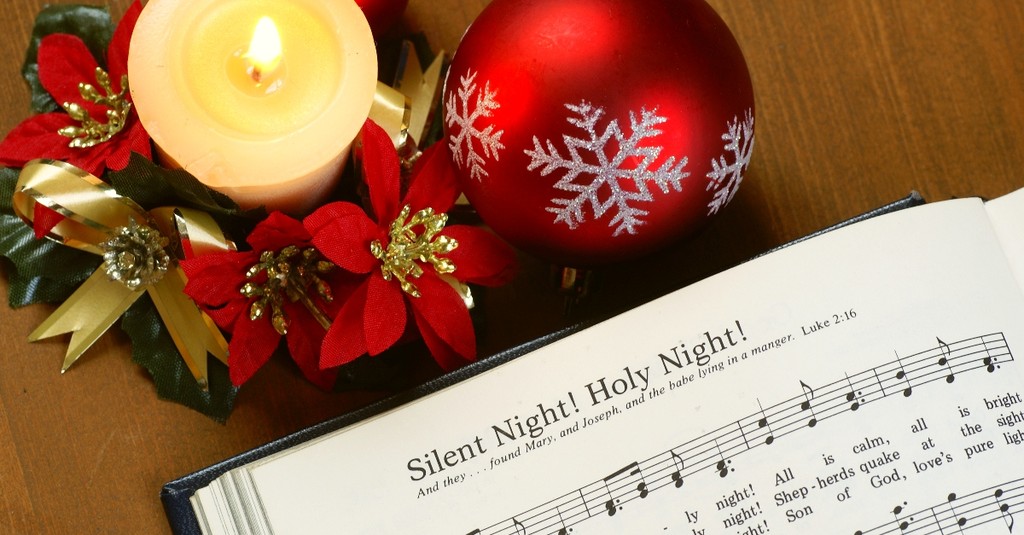
It seems like classic Christmas carols are everywhere during the Christmas season – on the radio, in concerts and worship services, and in the background while you’re shopping in stores. What is it about these beloved Christmas songs that give them such enduring power? Maybe it has to do with how their lyrics inspire us to remember the first Christmas, or how their music moves us emotionally. Classic Christmas hymns have a timeless appeal, so we listen and sing along to them year after year.
Here are 10 classic Christmas hymns that have stood the test of time.
1. “O Come, All Ye Faithful”
This is an especially popular Christmas hymn because of its focus on seeking God and worshiping God wholeheartedly. Originally written in Latin as “Adeste Fideles” by John Francis Wade in the 18th century, this song was later translated into English and has since been featured regularly in Christmas worship services. “O Come, All Ye Faithful” is based on the biblical report of the shepherds’ journey to Bethlehem to worship the infant Jesus.
The lyrics remind us of the angel’s announcement Luke 2:10-11: “Do not be afraid. I bring you good news that will cause great joy for all the people. Today in the town of David, a Savior has been born to you; he is the Messiah, the Lord.” What makes “O Come, All Ye Faithful” timeless is its call to believers everywhere to come to God with faith and trust, joining angels in worshiping God and experiencing the joy that comes from being in God’s presence. It reminds us that Christmas is about worship at its core.
Photo Credit: ©iStock/Getty Images Plus/MKucova
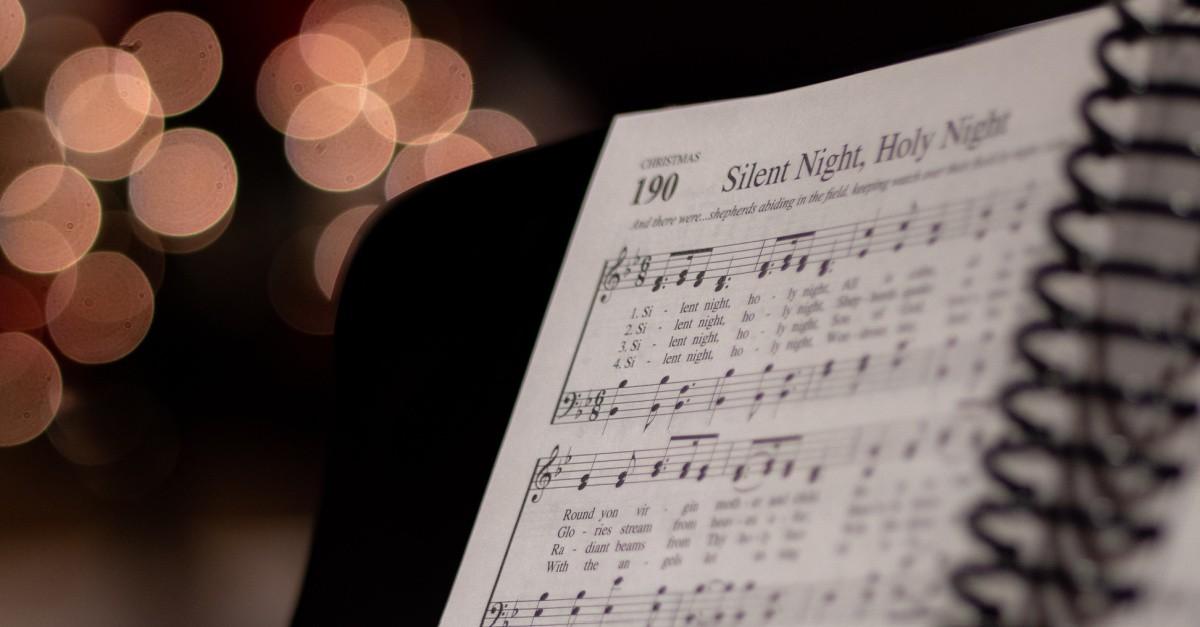
2. “Silent Night, Holy Night”
Few Christmas hymns have captured the peace of the first Christmas like "Silent Night, Holy Night." Written in 1818 by Joseph Mohr and set to music by Franz Xaver Gruber, this hymn was first sung on Christmas Eve in a small church in Oberndorf, Austria. The simple yet significant lyrics paint a peaceful picture of that holy night when Jesus was born, evoking a sense of quiet wonder when we sing it.
The hymn reflects the quiet and humble nature of Jesus’ birth as the Bible describes it in Luke 2:7: “She wrapped him in cloths and placed him in a manger, because there was no guest room available for them.” The timeless appeal of “Silent Night” lies in its ability to bring us to a place of peace and reflection during the busy Christmas season. It helps us feel a sense of reverent awe for God and encourages us to seek the ultimate peace of mind God offers us.
Photo Credit: ©Aaron Burden/Unsplash
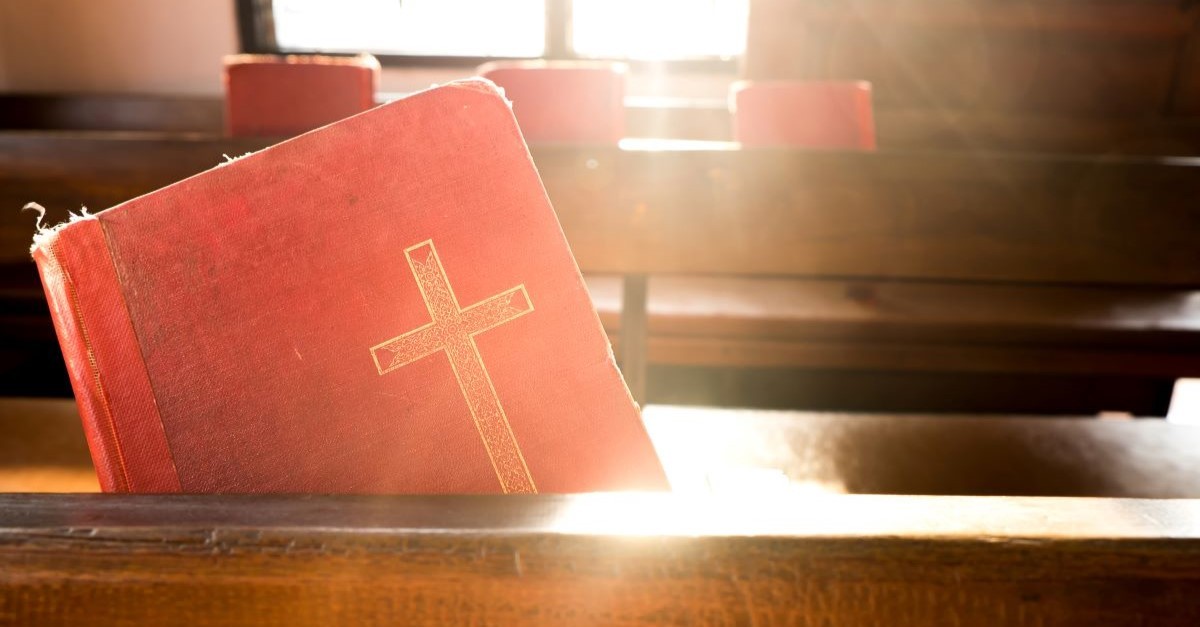
3. “Go Tell It on the Mountain”
This beloved African American spiritual has become a popular Christmas carol. Originally sung by slaves in the American South, “Go Tell It on the Mountain” was later compiled by John Wesley Work Jr. in the early 20th century. The song’s powerful call to proclaim the good news of Jesus’ birth is both a declaration of faith and a celebration of it. The lyrics are inspired by how the shepherds shared the good news after they saw Jesus, the world’s Savior.
Luke 2:17-18 records: “When they had seen him, they spread the word concerning what had been told them about this child, and all who heard it were amazed at what the shepherds said to them.” The refrain (“Go, tell it on the mountain, over the hills and everywhere; go, tell it on the mountain that Jesus Christ is born!”) focuses on the importance of sharing the Gospel message. What makes this hymn timeless is its call to action. It reminds us that Christmas is not just a time to reflect on our own lives; it’s also a time to spread the joy of the Savior’s birth to the world around us.
The upbeat melody and repetitive chorus of “Go Tell It on the Mountain” make it a popular hymn that many people around the world sing each Christmas. It captures the spirit of evangelism, encouraging us to share the hope we have through our relationships with Jesus – just like the shepherds, who didn’t keep the good news to themselves on the first Christmas. “Go Tell It on the Mountain” continues to inspire us to be bold witnesses of our faith, making it a timeless classic.
Photo Credit: ©GettyImages/ijeab
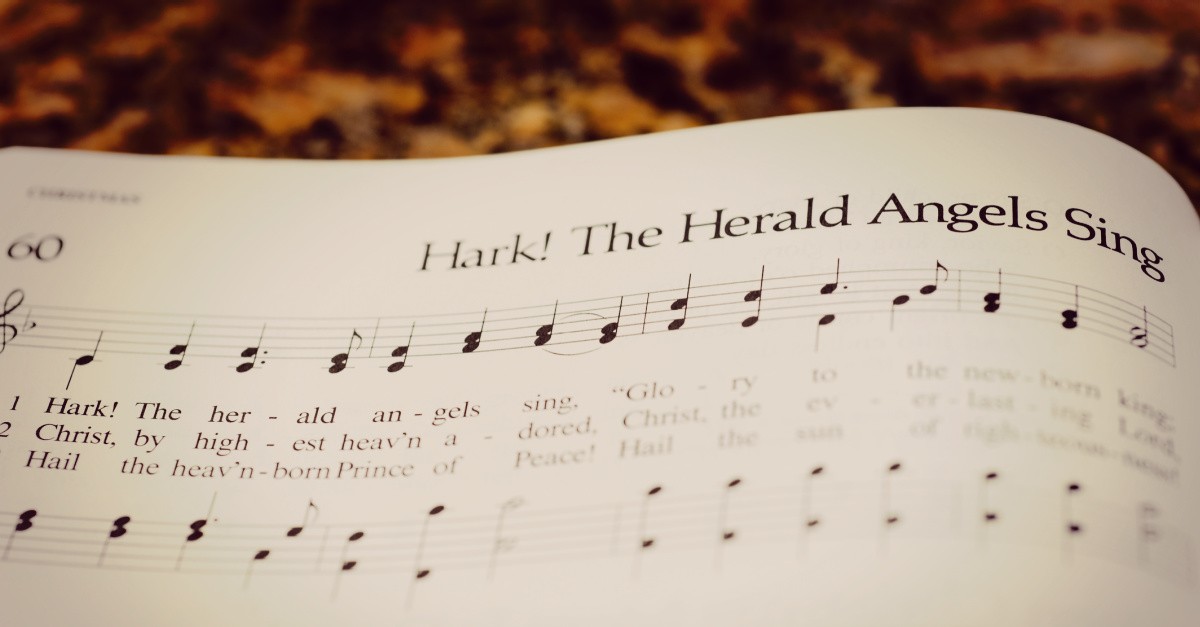
4. “Hark! The Herald Angels Sing”
Charles Wesley, the prolific hymn writer, wrote the lyrics to “Hark! The Herald Angels Sing” in 1739, and the melody we recognize today was adapted by Felix Mendelssohn. This hymn powerfully captures the joyful announcement of Jesus’ birth made by God’s holy angels to the shepherds, as described in Luke 2:13-14: “Suddenly a great company of the heavenly host appeared with the angel, praising God and saying, ‘Glory to God in the highest heaven, and on earth peace to those on whom his favor rests.’”
This song’s triumphant melody and thought-provoking lyrics proclaim the glory of the newborn King and the hope of reconciliation between God and humanity. The lyrics emphasize the wonder of Jesus’ work as the world’s Savior, celebrating the moment when “God and sinners reconciled.” It’s this powerful message of joyful redemption that continues to make “Hark! The Herald Angels Sing” a beloved classic.
Photo Credit: ©Getty Images/Earle Liason
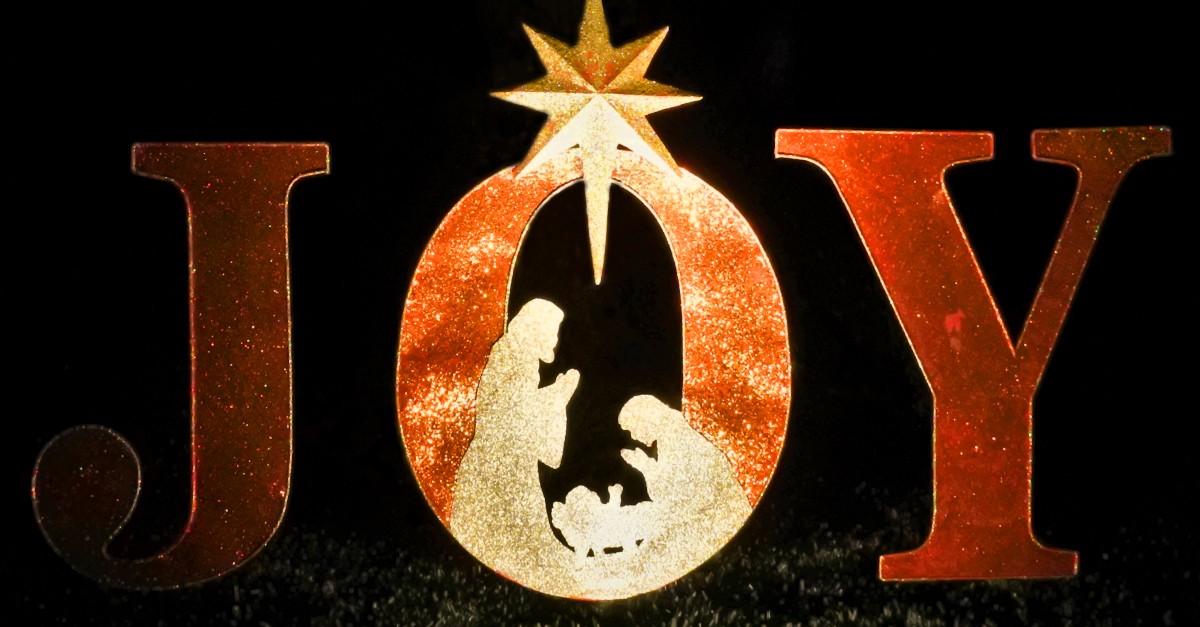
5. “Joy to the World”
People have been celebrating Christmas by singing “Joy to the World” for generations. This joyful song, written by Isaac Watts in 1719, actually was never intended to be a Christmas carol. It started out as a paraphrase of Psalm 98, celebrating Jesus’ second coming. However, it has become synonymous with the birth of Jesus, symbolizing the joy that Jesus brings to the world.
The hymn’s lyrics declare: “Let every heart prepare him room,” which echoes the call of John the Baptist in Luke 3:4 to “prepare the way for the Lord.” The message of rejoicing in God’s gift of salvation is timeless, making “Joy to the World” a hymn that continues to inspire generations of people to celebrate the true joy of Christmas.
Photo Credit: ©Getty Images/Citysqwirl.jpg
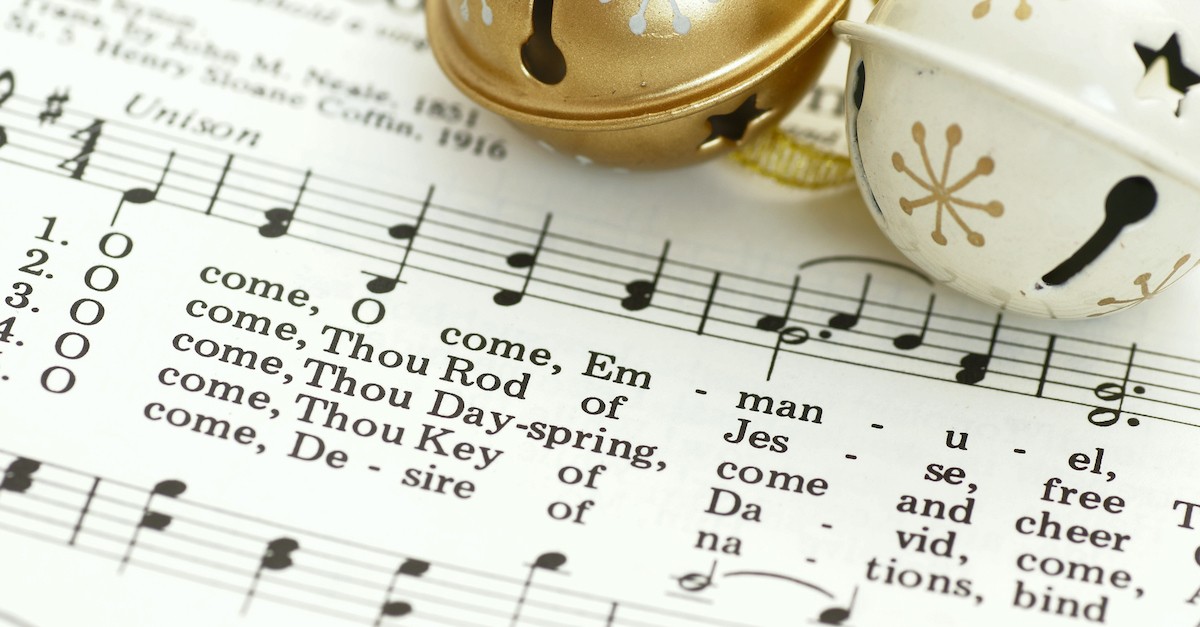
6. “O Come, O Come, Emmanuel”
Dating back to the 12th century, “O Come, O Come, Emmanuel” is one of the oldest Christmas hymns still sung today. It reflects a deep longing for the Messiah before he arrives on the first Christmas, which resonates with the prophecies of Isaiah 7:14: “The virgin will conceive and give birth to a son, and will call him Immanuel.”
The hymn’s lyrics speak of anticipation and hope for deliverance, so people often sing “O Come, O Come, Emmanuel” during the Advent season. The refrain “Rejoice! Rejoice! Emmanuel shall come to thee, O Israel,” remind us of God’s faithfulness to keep his promises. Its enduring popularity lies in its ability to capture the spirit of longing and hope, making it a cherished part of Christmas worship.
Photo Credit: ©GettyImages/MKucova
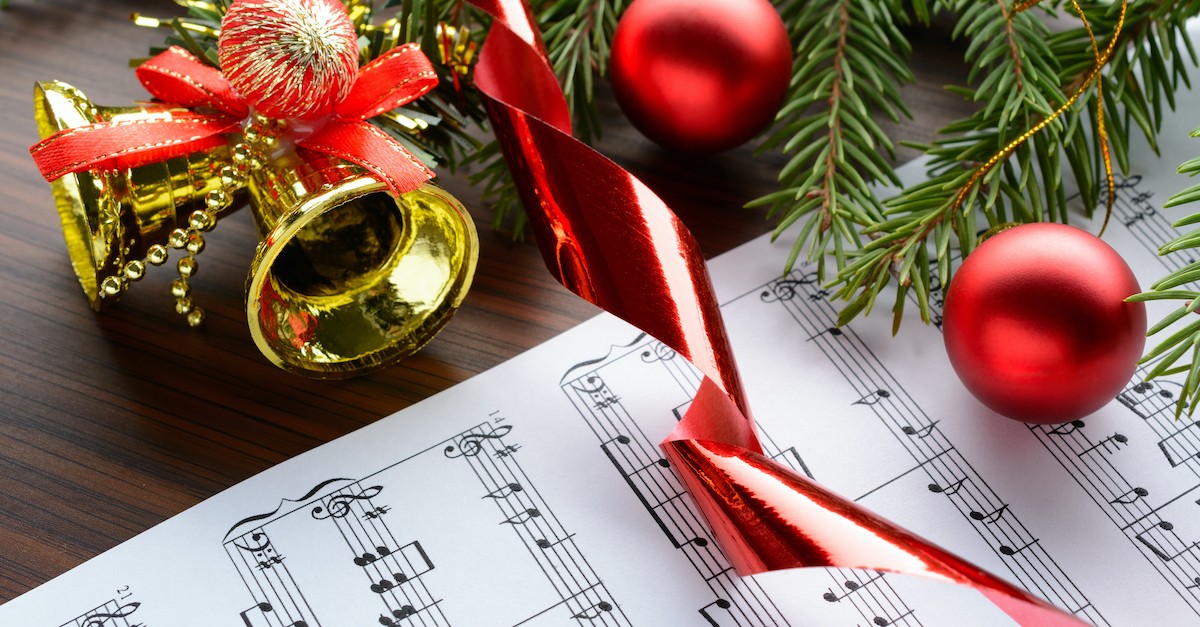
7. “Angels We Have Heard on High”
This traditional French Christmas carol celebrates the angelic announcement of Jesus’ birth on the first Christmas night. The hymn’s most iconic feature is the chorus – “Gloria in excelsis Deo” (Glory to God in the highest) – which quotes the angels' song in Luke 2:14.
This hymn presents the exuberant joy of the Christmas message, inviting us to join the angels to praise God. Its soaring melody and joyful lyrics make it a favorite song to sing during Christmas, year after year.
Photo Credit: ©GettyImages/RamilF

8. “The First Noel”
This is a traditional English carol that dates back to the 16th century. “The First Noel” narrates the story of the shepherds, who were the first to receive the news of Jesus’ birth. It draws from Luke 2:8-9, which describes the angel’s appearance to the shepherds, and reflects on the humble beginnings of our Savior’s life.
This hymn’s simple yet beautiful melody, combined with its storytelling lyrics, transports us back to that holy night, reminding us of the humble circumstances into which Jesus was born. The message of “The First Noel” emphasizes God’s love, which motivated him to leave heaven and come into our world to help us.
Photo Credit: ©Unsplash/Caroline Hernandez
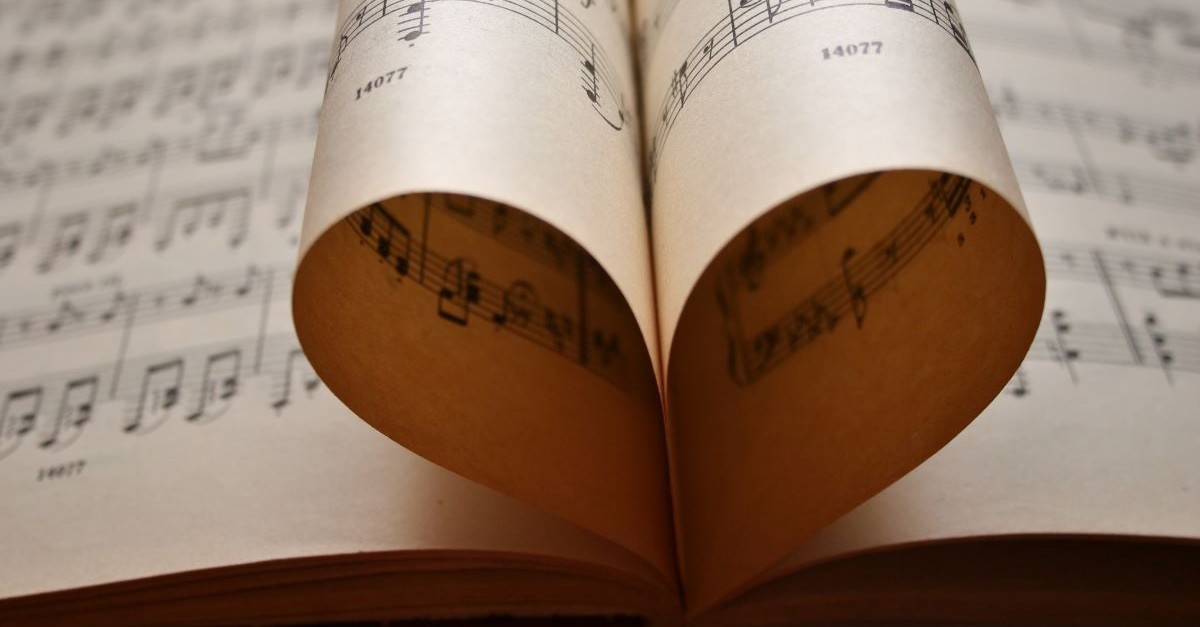
9. “O Holy Night”
This classic hymn, which was originally called “Cantique de Noël,” was composed in 1847 by Adolphe Adam, with lyrics by poet Placide Cappeau. This hymn stands out for its dramatic melody and lyrics that powerfully express the awe-inspiring feelings of focusing on Jesus’ birth. It begins by acknowledging the night of the Savior’s birth as a turning point in history, where “the soul felt its worth.”
Inspired by Isaiah 9:6, which declares: “For to us a child is born, to us a son is given,” this Christmas carol captures the deep reverence and joy that come with realizing that Jesus is the promised Messiah. The line, “Fall on your knees, O hear the angel voices,” invites us to respond to God’s wonder by worshiping our wonderful God. “O Holy Night” is a perennial favorite during Christmas worship services.
Photo Credit: ©GettyImages/Paha_L
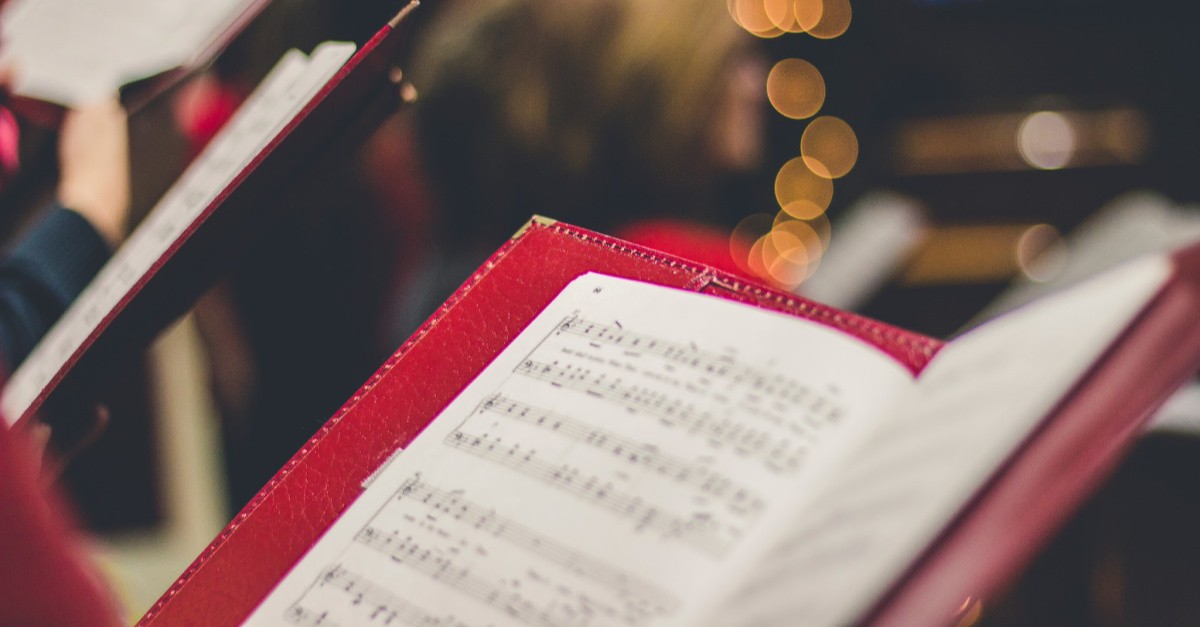
10. “What Child Is This?”
The lyrics of this Christmas hymn are set to the melody of the traditional English folk song “Greensleeves.” Written by William Chatterton Dix in 1865, this song poses a question that invites us to reflect: Who is this child lying in a manger? The answer, of course, is found in Matthew 1:23: “The virgin will conceive and give birth to a son, and they will call him Immanuel” (which means “God with us”). The reflective nature of “What Child Is This?” encourages us to consider God’s mysteries – especially the majestic mystery of God’s incarnation. The powerful question and response continue to inspire us, reminding us of the miracle of God coming to live with us.
In conclusion, these classic Christmas hymns have stood the test of time not just because of their beautiful melodies but also because of the deep spiritual truths they communicate to us. They’re based on the Bible’s eternal story of God coming into our world to save us. These classic Christmas carols inspire us year after year by reminding us of God’s unchanging love and faithfulness!
Photo Credit: David Beale/Unsplash

Originally published Saturday, 14 December 2024.
